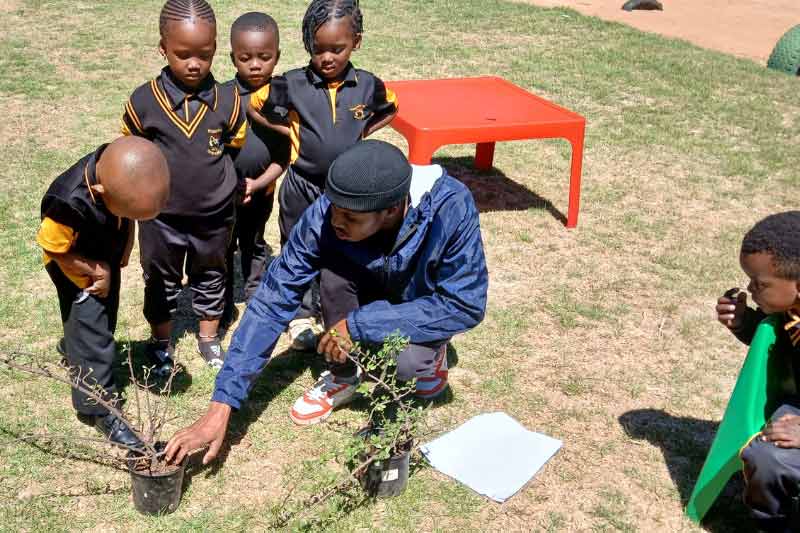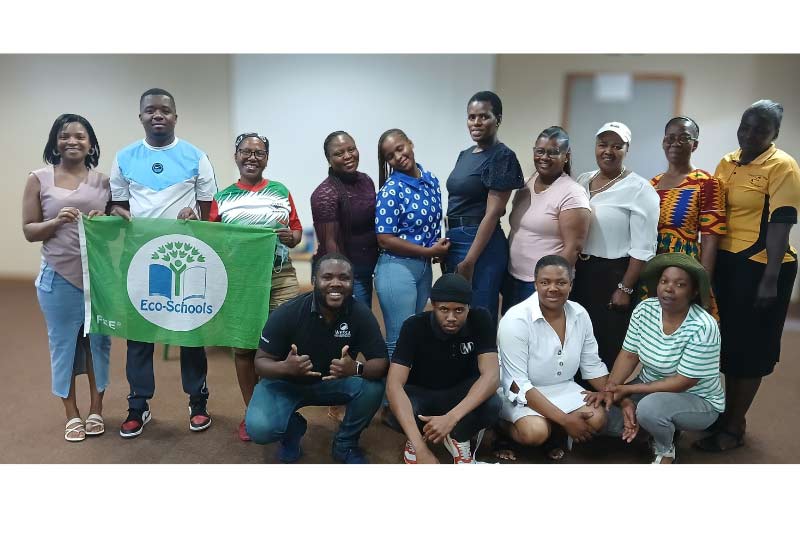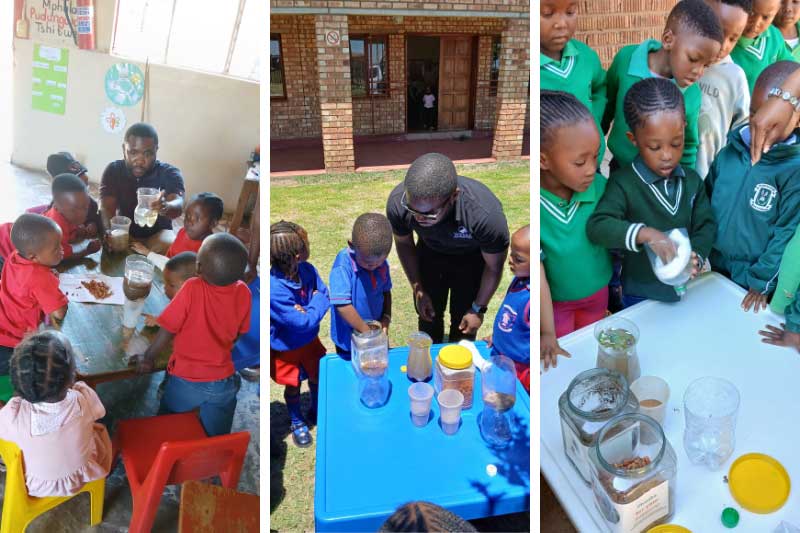Left to right: Learners at Thuto Ke Lesedi ECD Centre learning about water filtration. An ECD Learner at Zenzeleni ECD Centre exploring water conservation through an experiment. Qalabotjha Creche learners participating in a water filter experiment, encouraging hand-on learning
From 22 to 24 October 2025, the WESSA team completed the final implementation visits to the Qalabotjha Early Childhood Development (ECD) Centres in Villiers, Free State, marking the successful conclusion of the WESSA–N3 Toll Concession (N3TC) Project.
This final phase focused on building climate change resilience by identifying and implementing innovative solutions for drought preparedness and water security, directly addressing the community’s ongoing challenges with water scarcity.
Throughout the week, WESSA facilitators conducted interactive education sessions with learners to deepen their understanding of water resources and human impacts on these systems. Children explored practical water conservation techniques, with a special focus on rainwater harvesting as a vital tool for community resilience.

Pictured above: Mr Ganye an ECD Practitioner at Ntataise ECD Centre during a drought simulation lesson
To ensure long-term sustainability, water tanks were installed at the participating ECDs, a tangible step towards securing consistent access to water while promoting responsible resource management among both learners and educators.
Educators workshop to enable future problem solving
The project concluded with an empowering teachers’ workshop, bringing together local educators to share ideas and solutions for drought resilience. The session encouraged participants to design awareness campaigns promoting water-wise behaviour in schools and communities, and to continue learning from one another through collaboration.
A key highlight of the workshop was the establishment of a collaborative platform for teachers, enabling the exchange of ideas, resources, and best practices. The initiative recognises that greater impact is achieved when schools work together, strengthening collective climate action at the grassroots level.
The completion of this phase underscores WESSA’s and N3TC’s shared commitment to environmental education, sustainable resource management, and community-driven resilience, ensuring that even the youngest learners become part of building a water-secure future.
 Pictured above: N3TC Project school Eco-Committee coordinators attendees.
Pictured above: N3TC Project school Eco-Committee coordinators attendees.

